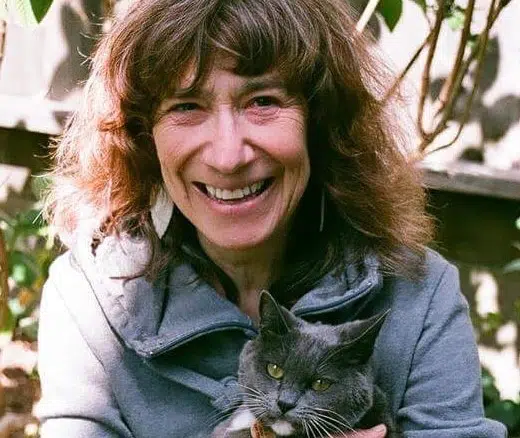By Tanya Temkin
No one ever said a word
In 2017, I developed all kinds of bothersome symptoms – bloating, filling up too fast when eating and extreme fatigue. A visit to my primary care physician led to an appointment with a gynecologic oncologist and, ultimately, a stage 4 ovarian cancer diagnosis. Because all women with ovarian cancer meet national guidelines for genetic counseling and testing, I was then referred to a genetic counselor.
I do not remember hearing about BRCA even though I had a family history of cancer. My mother died of breast cancer, a maternal first cousin died of ovarian cancer and another maternal cousin survived breast cancer. None of my doctors had ever suggested genetic counseling. I knew that having a mother with breast cancer meant I was at a somewhat increased risk, but I was told that, because my mother was postmenopausal at the time of her diagnosis, her cancer probably did not have a hereditary cause. Until the time that I talked to the genetic counselor, I don’t recall any provider asking me about my ethnicity. I had no idea that being from an Ashkenazi Jewish family put me at greater risk of any type of cancer.
My ovarian cancer was caused by a BRCA2 mutation
My genetic counselor called me the day after my first chemo infusion to tell me that I tested positive for a BRCA2 mutation, one that had existed in many Ashkenazi families for hundreds of years. On one level, I felt everything falling into place. I had an explanation for my family’s cancer history. I felt some relief that there was also a genetic explanation for my ovarian cancer. Like many patients, I had thought I may have done something “wrong” that led to my disease; maybe it was because I didn’t drink enough green tea or because I used food containers made with xenoestrogens, like BPA.
Jewish guilt
I could not understand how I had not heard of BRCA before. As a woman with a master’s degree in public health, having worked for a major health organization, how could I not have known? My family is active in the Jewish community; how could I not have heard about the high prevalence of BRCA mutations in the Ashkenazi Jewish population?
My family is also proud of its yichus – that is, its lineage of Talmudic scholars and prominent rabbis. It was hard to wrap my mind around the fact that this mutation, too, is part of my Ashkenazi heritage. If only I had known. I felt so guilty about my lack of knowledge and the fact that had I been more aware, I may have been able to reduce my risk of ovarian cancer through surgery.
I also wondered why my doctors did not say anything over the years, especially since I spoke to them often about my fear of breast cancer. Equally surprising since it has been known in medical circles for years that BRCA mutations are much more common in Ashkenazi Jewish families than in the general population.
I don’t have children of my own, but I was also concerned that my brother and members of my extended family were also at genetic risk.
FORCE helped me and now I pay it forward
My genetic counselor referred me to FORCE at our first meeting and I thank him for that. While going through chemo, I spent hours absorbing information from the FORCE website, especially updates on research studies and the XRAYS section featuring critical analysis of news articles related to hereditary cancer. After I completed chemo, I talked with a FORCE peer navigator about my decision to pursue surveillance to manage my breast cancer risk. I feel I need to conserve my strength to deal with the possibility of an ovarian cancer recurrence, as the likelihood is much higher than my remaining lifetime risk of breast cancer. So I decided on surveillance instead of a prophylactic mastectomy. The breast surgeon I consulted with supported my decision. The peer navigator and I also discussed how to initiate discussions with extended family members. I have talked one-on-one with my relatives, many of whom I hadn’t spoken with for years. I also learned about FORCE’s Research Advocacy Training program and I thought doing this work would help me “pay it forward,” especially because it was a good fit with my professional background. In this way, FORCE has helped me forge a direction for meaningful involvement in issues that have unalterably affected my life.
My words of wisdom to someone learning of their hereditary cancer
Take a deep breath. There are many decisions you will face on top of the treatment you may need. Focus first on getting through frontline treatment. If you want to learn more about your disease, use reputable online resources and develop some health literacy to distinguish on-line hype from evidence-based material. Do your due diligence to inform family members; work with your genetic counselor or a FORCE peer navigator to develop a strategy for doing so. Don’t feel pressured about how to deal with your risk for other types of cancer, and make educated decisions that you’ve thought through carefully and that feel right to you.
Tanya Temkin, BRCA2 Ovarian Cancer Survivor
